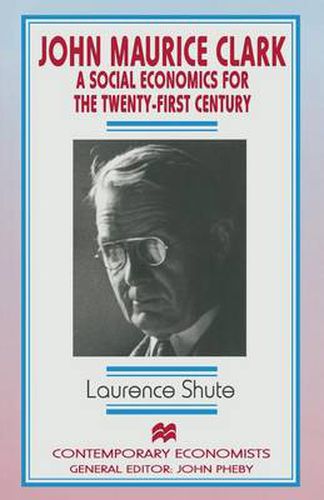Readings Newsletter
Become a Readings Member to make your shopping experience even easier.
Sign in or sign up for free!
You’re not far away from qualifying for FREE standard shipping within Australia
You’ve qualified for FREE standard shipping within Australia
The cart is loading…






This title is printed to order. This book may have been self-published. If so, we cannot guarantee the quality of the content. In the main most books will have gone through the editing process however some may not. We therefore suggest that you be aware of this before ordering this book. If in doubt check either the author or publisher’s details as we are unable to accept any returns unless they are faulty. Please contact us if you have any questions.
The first comprehensive study of the life and works of John Maurice Clark (1884-1963), who continued the work of his father, John Bates Clark (1847-1938) by developing a new dynamic economic theory, often referred to as ‘Social Economics’. Although J.M. Clark’s contributions anticipated much of Keynes’, he went much further: exploring ethics, overhead costs, business cycles, methodology, and social control. Clark argued that costs were not precise terms and new forms of social control were needed in addition to the market.
$9.00 standard shipping within Australia
FREE standard shipping within Australia for orders over $100.00
Express & International shipping calculated at checkout
This title is printed to order. This book may have been self-published. If so, we cannot guarantee the quality of the content. In the main most books will have gone through the editing process however some may not. We therefore suggest that you be aware of this before ordering this book. If in doubt check either the author or publisher’s details as we are unable to accept any returns unless they are faulty. Please contact us if you have any questions.
The first comprehensive study of the life and works of John Maurice Clark (1884-1963), who continued the work of his father, John Bates Clark (1847-1938) by developing a new dynamic economic theory, often referred to as ‘Social Economics’. Although J.M. Clark’s contributions anticipated much of Keynes’, he went much further: exploring ethics, overhead costs, business cycles, methodology, and social control. Clark argued that costs were not precise terms and new forms of social control were needed in addition to the market.